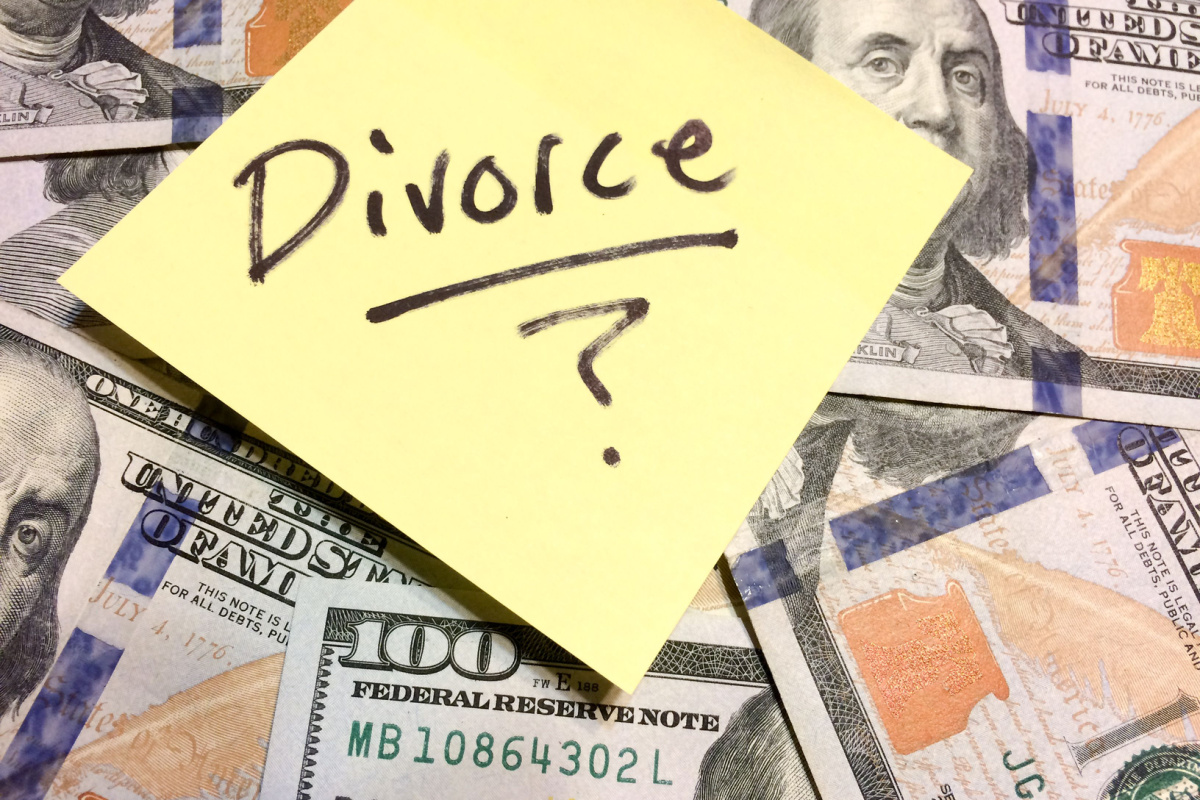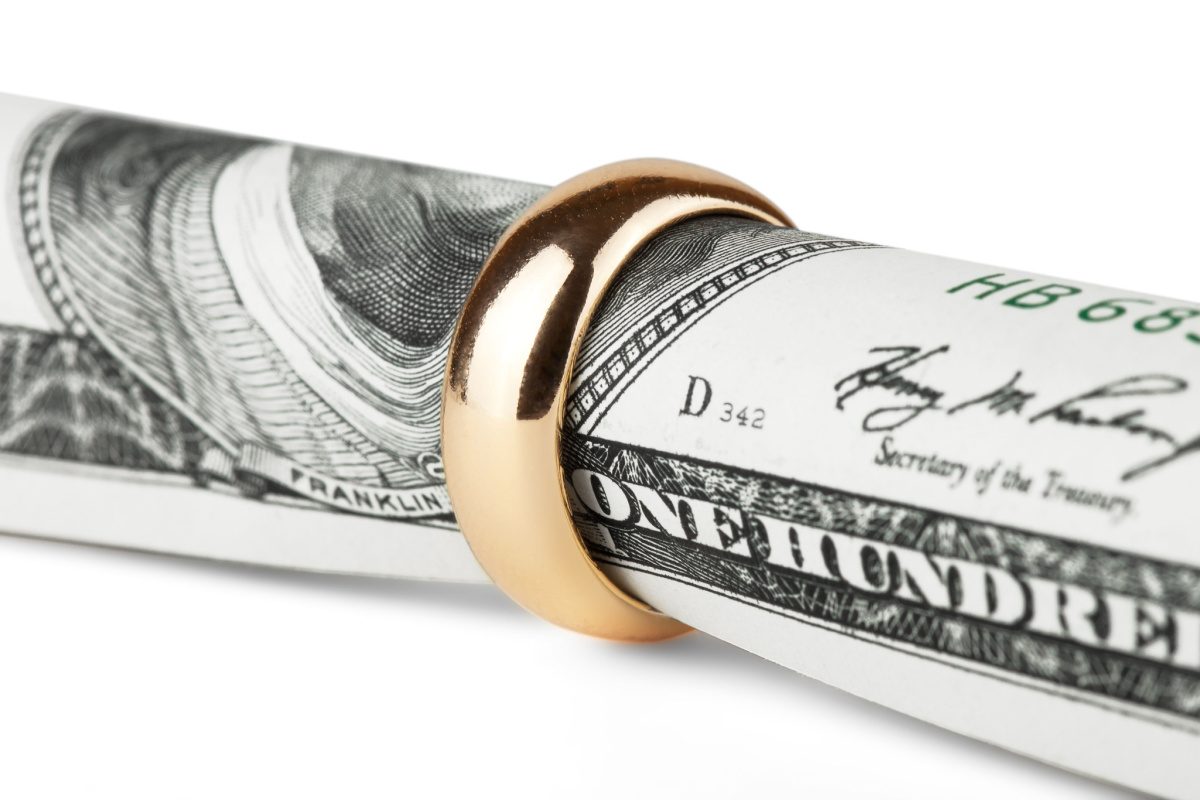Whether a spouse is worth $137 billion, as Jeff Bezos, founder of Amazon, was at the time of his divorce or $100,000, the division of assets and debts depends on the state in which the divorce is filed. The state can either be a community property state or an equitable distribution state.
As Bezos found out, Washington state, where he and his wife Mackenzie resided, is a community property state. Being a community property state means all debt and assets accrued at the same time they were married are equally divided, allocating each spouse about $65 billion. If Bezos had lived in Oregon, an equitable distribution state, the outcome may have been different.
Find out what happens to debt in a divorce in Louisiana and what to do if there is debt in the marriage and a divorce is considered.
What Happens to Debt in a Divorce?
Remember, several different debts that can accrue during a marriage must be settled in the case of a divorce. If a person accrued the debt before the marriage, that person would be solely responsible for the debt. In other cases, one spouse will be solely responsible for debts, even if the debt was accrued during the marriage.
Credit Card Debts
If both spouses’ names are on the credit card account, called a joint credit card, both will be responsible for 50% of the debt in a community property state. However, in an equitable distribution state, other factors might determine which spouse should be liable for more or less of the total debt besides splitting the debt.
Even if there is just one name on the credit card, this could also be split 50-50 in a community property state. However, even in community property states and very few cases, the court may consider other factors regarding allocating responsibility for the debt.
Mortgage Loans
Although a mortgage loan will most likely be a community marital debt, other factors may make one spouse more liable than the other. The names on a mortgage are the people who are responsible for paying the mortgage. The names on the title are the owners of the house. If one name is on the mortgage, but both names are on the title, both spouses will still be responsible for paying the mortgage.
Auto Loans
A car can be in both names, but only one person can have the car and be responsible for the payments. However, the person who gets the vehicle may not feel like making the payments and can force the other spouse to pay or ruin their credit.
Medical Debts
In some states, factors like when the medical debts occurred and how essential was the medical care can be incorporated into deciding liability. At the same time, in community property states, medical debt accumulated during the marriage is split in half.
Student Loan Debts
In Louisiana’s Fourth Circuit Court of Appeal, Dr. Stephen Deputy appealed a divorce judgment against him regarding student loan debts. His ex-wife, Susan Gisleson, had won the right to be absolved of Dr. Deputy’s student loan debts while he had to be half responsible for hers. What was the difference? Dr. Deputy’s loans were taken out before they were married, while his wife accrued student loans while they were married. The Court of Appeal affirmed the decision.
Who is Responsible for Debt in Louisiana?
Louisiana is a community property state where debts and assets accrued during the marriage are divided equally. Therefore, the debt division will be divided for each spouse to be responsible for half unless other significant factors are involved.
What Should I Do if I Have Debt and Am Considering Divorce?
It might be possible for couples to negotiate and divide the debt on their own rather than depending on the court to allocate the debt. However, if that option won’t work, try and pay off the debt. Paying off the debt helps facilitate a smoother divorce and a better chance of keeping assets.
Consult a credit report to determine the complete list of debts. Then, only pay off debts that will not sacrifice financial security. Credit counseling may help in creating a debt plan. Consider what to do with credit cards, mortgages, and auto loans before the divorce proceedings begin.
Credit Cards
If one or the other spouse is an authorized user on the credit card, remove the name as an authorized user from the credit card account to prevent more charges from occurring. Removing the name will also mitigate damages to a credit score from an ex’s behavior with the card.
Mortgages
If one spouse’s name is on the mortgage and the other is not, but both are on the title, remove the name that is not on the mortgage from the title. Removing the name from the title will remove liability for the debt but also any claims on the house if sold. If both names are on the mortgage and title, consider selling the home and splitting the proceeds.
Auto Loans
It may be best to pay off the balances or sell the cars to get rid of auto loans. If these are not viable options, consider making automatic payments as part of the divorce ruling or refinancing the loan.
What Happens if I Still Get Calls from Creditors After the Divorce?

Unfortunately, if a judgment allocates a share of the debt to one spouse and the spouse doesn’t pay, the other spouse can still be on the hook for that debt. If the creditor will allow it, try and remove the name that the courts deemed not responsible for the debt from the account. If removing the name from the account is impossible, taking the ex-spouse to court can force them to pay what they owe, pay additional compensation for damages, and face fines or jail.
Also, be aware that when one ex-spouse files bankruptcy after the divorce to absolve themselves of joint debt, this does not forgive the other spouse. The obligation still exists, but the liability of the person who files for bankruptcy is erased. Therefore, creditors can still go after the other ex-spouse for payment despite the bankruptcy.
If you are dealing with a divorce, schedule a consultation today by calling (504) 523-6496.

